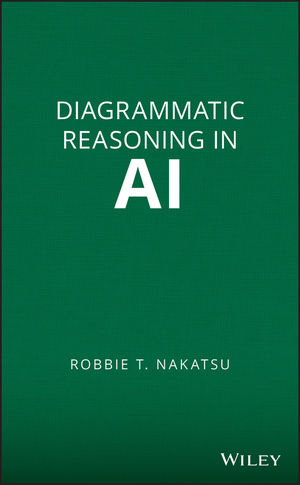Diagrammatic Reasoning in AIISBN: 978-0-470-33187-3
Hardcover
346 pages
December 2009
 This is a Print-on-Demand title. It will be printed specifically to fill your order. Please allow an additional 10-15 days delivery time. The book is not returnable.
|
||||||
PIONEERING WORK SHOWS HOW USING DIAGRAMS FACILITATES THE DESIGN OF BETTER AI SYSTEMS
The publication of Diagrammatic Reasoning in AI marks an important milestone for anyone seeking to design graphical user interfaces to support decision-making and problem-solving tasks. The author expertly demonstrates how diagrammatic representations can simplify our interaction with increasingly complex information technologies and computer-based information systems. In particular, the book emphasizes how diagrammatic user interfaces can help us better understand and visualize artificial intelligence (AI) systems. It examines how diagrammatic reasoning enhances various AI programming strategies used to emulate human thinking and problem-solving, including:
- Expert systems
- Model-based reasoning
- Inexact reasoning such as certainty factors and Bayesian networks
- Logic reasoning
A key part of the book is its extensive development of applications and graphical illustrations, drawing on such fields as the physical sciences, macroeconomics, finance, business logistics management, and medicine. Despite such tremendous diversity of usage, in terms of applications and diagramming notations, the book classifies and organizes diagrams around six major themes: system topology; sequence and flow; hierarchy and classification; association; cause and effect; and logic reasoning. Readers will benefit from the author's discussion of how diagrams can be more than just a static picture or representation and how diagrams can be a central part of an intelligent user interface, meant to be manipulated and modified, and in some cases, utilized to infer solutions to difficult problems.
This book is ideal for many different types of readers: practitioners and researchers in AI and human-computer interaction; business and computing professionals; graphic designers and designers of graphical user interfaces; and just about anyone interested in understanding the power of diagrams. By discovering the many different types of diagrams and their applications in AI, all readers will gain a deeper appreciation of diagrammatic reasoning.



